American Poetry by Chinasia Gill

“Envisioning Africa in African American Poetry” explores the ways in which African American poets depict, engage with, and interpret the African continent within their works. This research delves into the nuanced strategies and approaches that poets use to envision Africa, considering historical, cultural, and personal contexts. By analyzing the themes, symbols, language, and perspectives present in African American poetry that reference Africa, this research seeks to uncover the complex and multifaceted representations of the continent within the African American literary tradition.
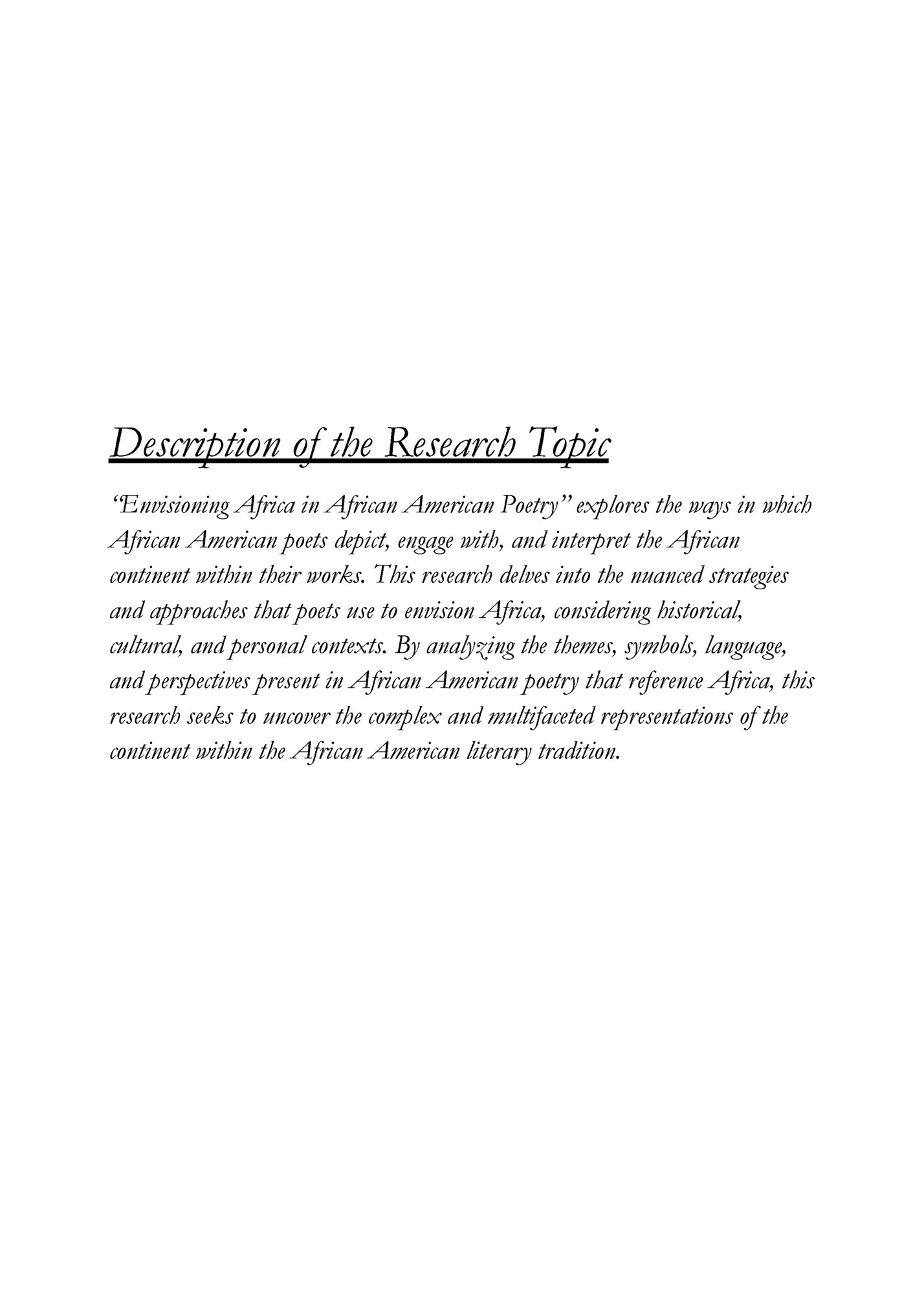
All four sources collectively explore the theme of “envisioning Africa in African American poetry” by highlighting the deep cultural, historical, and emotional connections between Africa and the African American experience. Each poem offers a unique perspective on Africa, whether through themes of resilience, heritage, pride, longing, or cultural connection. Together, these poems showcase the rich tapestry of African American poetry in its representation of Africa as a source of inspiration, strength, and cultural identity within the broader African American literary tradition. They demonstrate the importance of Africa as a central theme in African American poetry and its role in shaping African American identity and cultural consciousness.
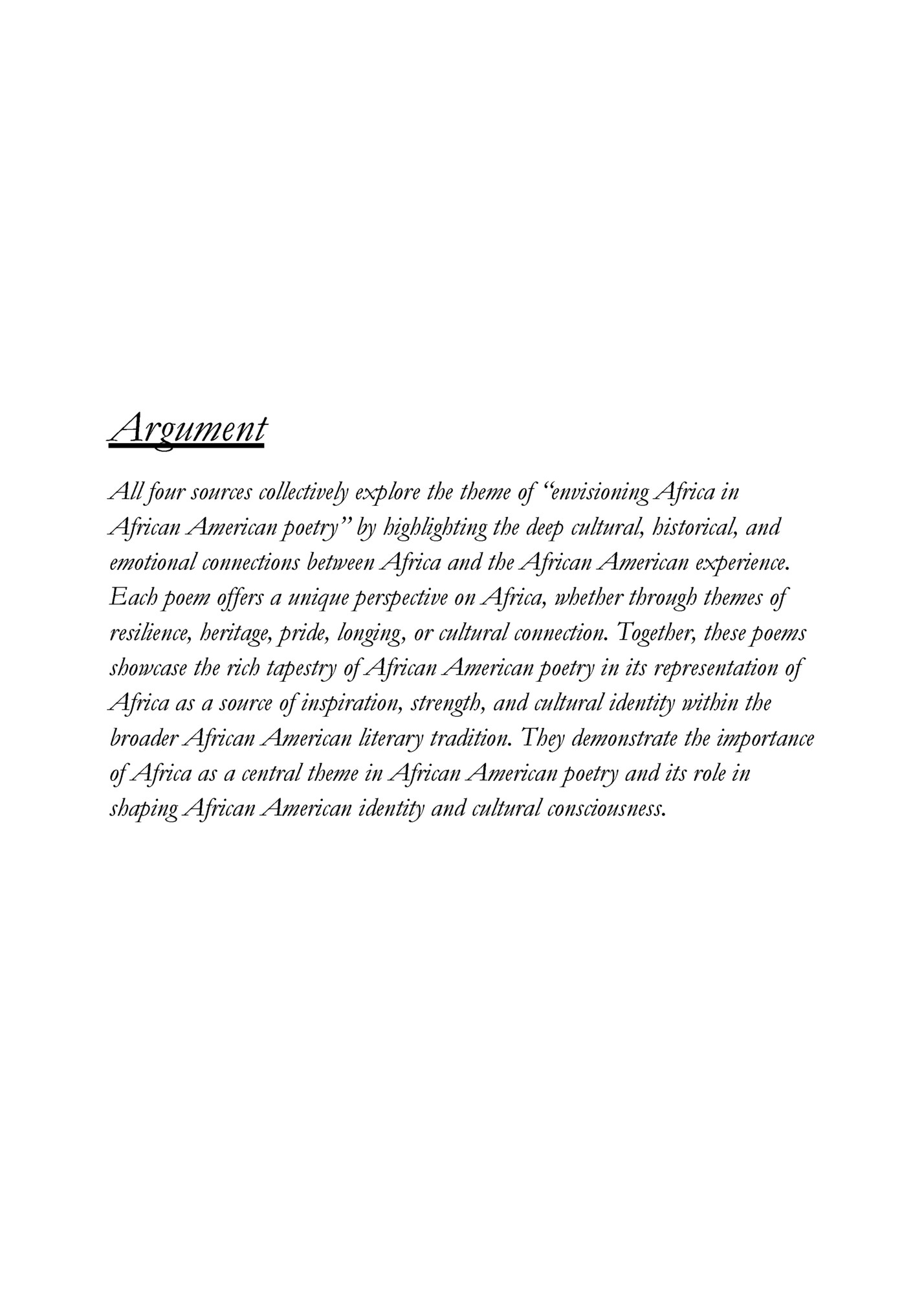
What nuanced strategies do African American poets utilize in envisioning Africa within their poetry, considering historical, cultural, and personal context? The strategies that African American poets utilize in envisioning Africa within their poetry, considering historical, cultural, and personal context, are weaving together themes of ancestral heritage, diasporic experiences, and the complexities of identity formation to foster a sense of belonging and solidarity within the diaspora and offer a nuanced exploration of heritage, experience, and identity in all its complexity.
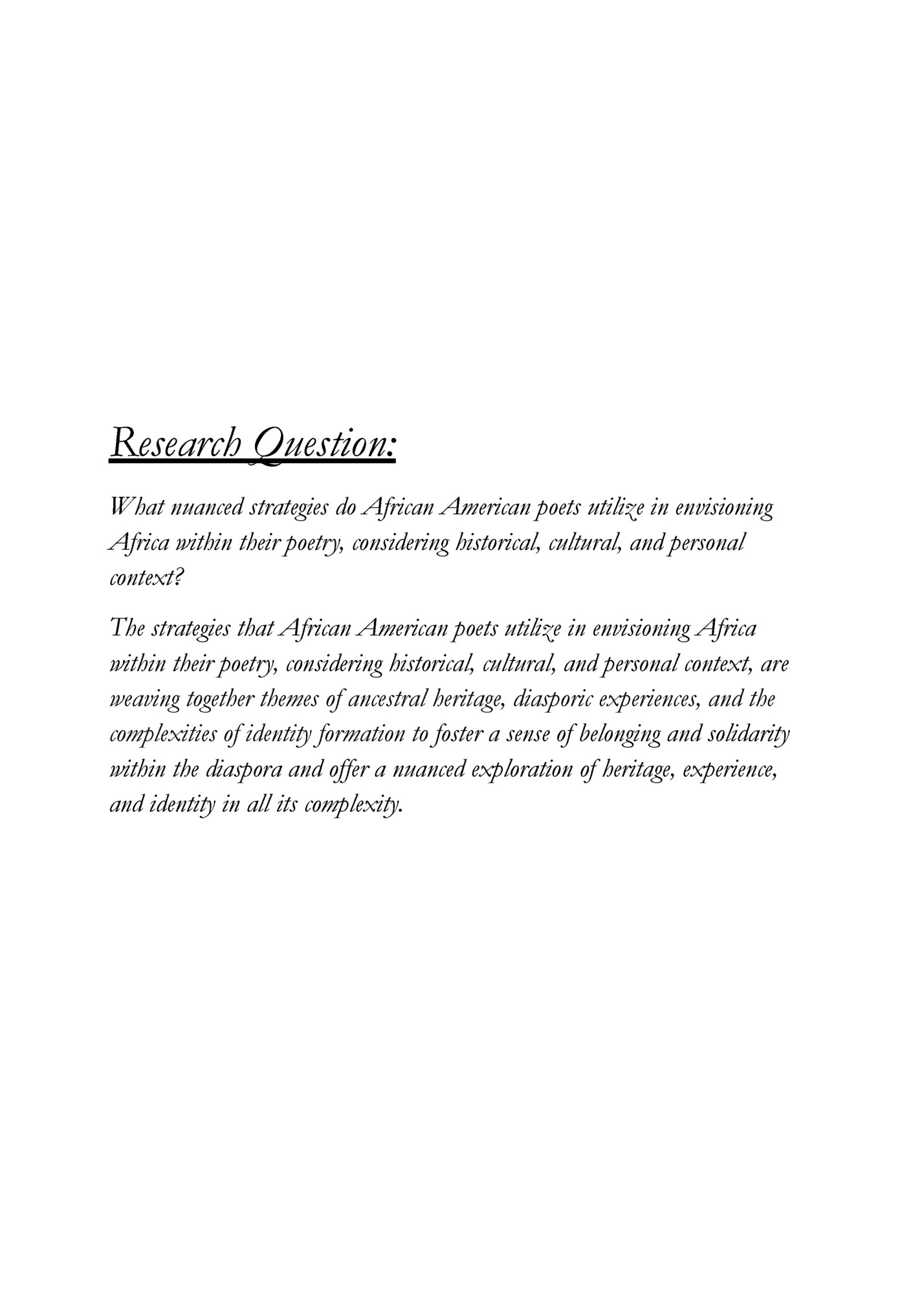
How do African American poets draw upon historical narratives and cultural memory to shape their visions of Africa? African American poets draw upon historical narratives and cultural memory to shape their visions of Africa by exploring the shared experiences, struggles, and triumphs of African Americans and connecting them to the broader African diasporic experience.
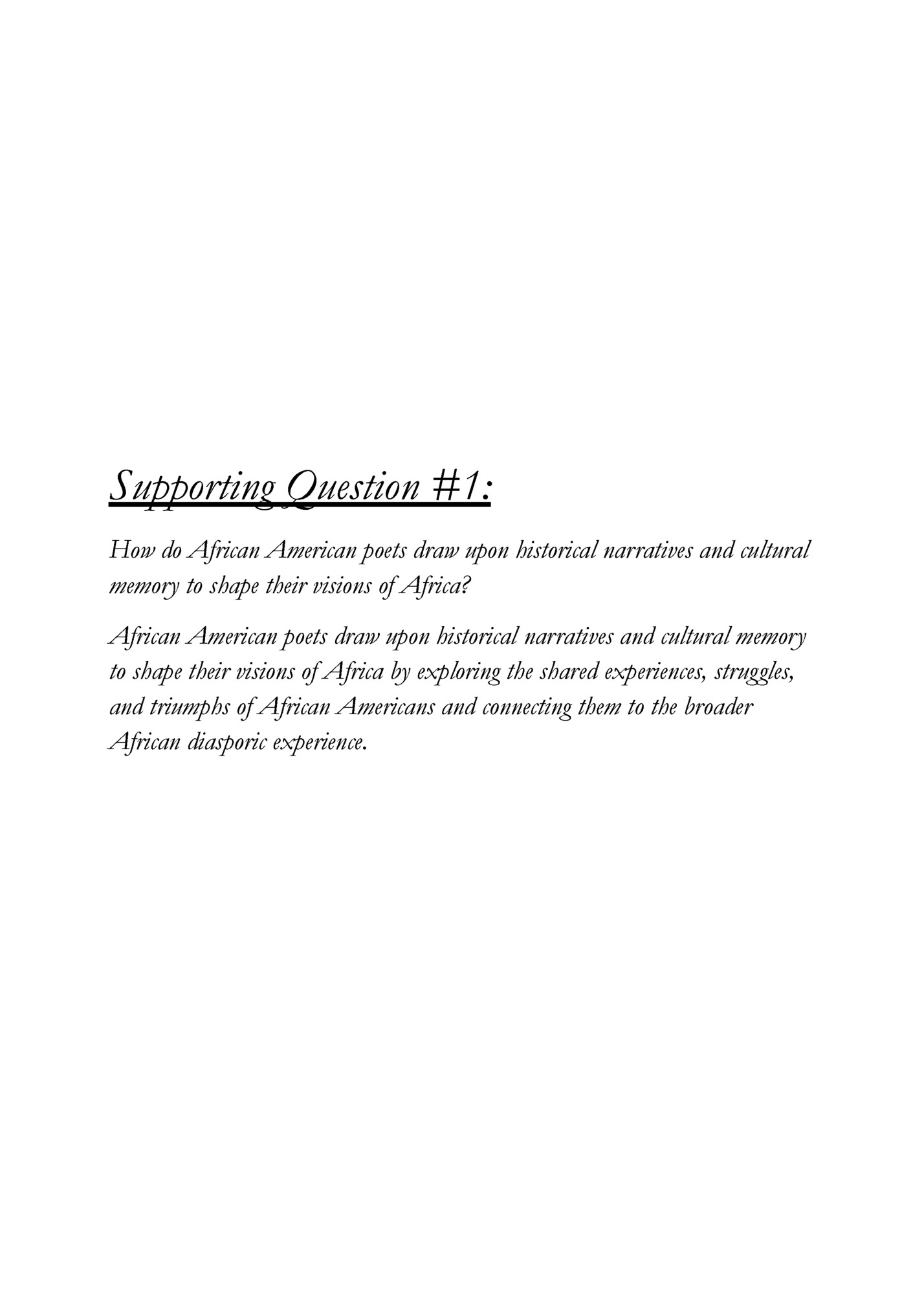
“Still I Rise” by Maya Angelou is a powerful and empowering poem that celebrates resilience, courage, and the indomitable spirit of the human soul. The poem is a defiant declaration of self-worth and determination in the face of adversity and oppression. It also celebrates the endurance and perseverance of the African American community, drawing upon historical narratives of struggle and resistance to shape a vision of African American resilience and triumph. Maya Angelou alludes to Africa by using sentences like “You may write me down in history with your bitter, twisted lies,” and “But still, like dust, I’ll rise.” to talk about how Black people rose to the top after being put down for so long from being enslaved to now where. For example, we had Barack Obama who was the first Black president to lead the United States. But not only that, we have Black-Owned Businesses, Black people in politics, Black doctors, and scientists. This shows that we are able to do anything that we put our minds to and nothing can stop us from doing that. This also connects to what we’re learning about in history where we’re trying to challenge the misconceptions about African American studies.
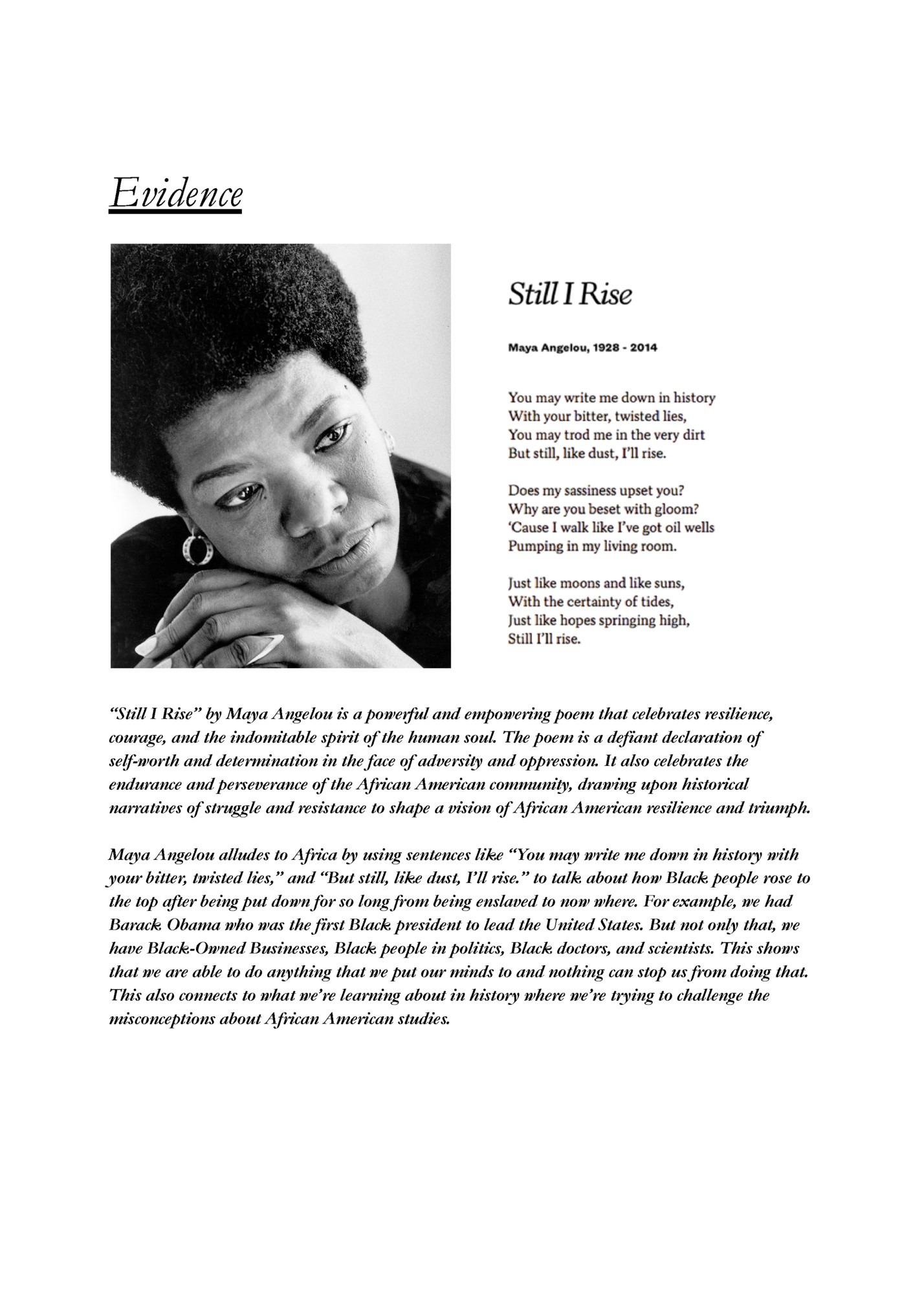
What linguistic and stylistic techniques do African American poets employ to evoke imagery and emotions associated with Africa in their words? African American poets use a combination of allusion, imagery, dialect and vernacular, rhythm and music, and themes of freedom and liberation to skillfully evoke vivid imagery and powerful emotions associated with Africa in their poetry, creating a deep and resonant connection to the continent's rich cultural heritage and history.
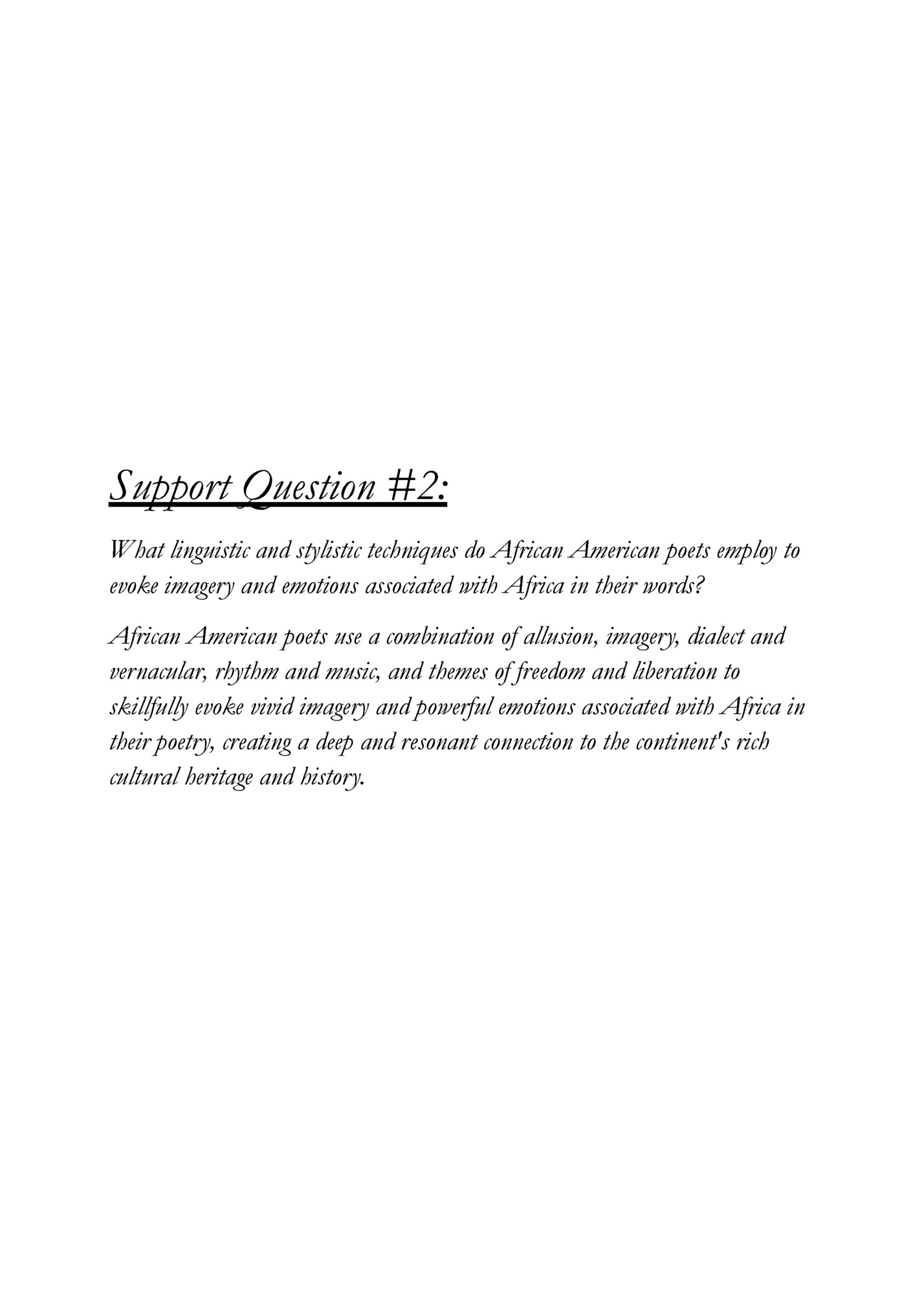
"The Negro Speaks of Rivers" is a short but powerful poem by Langston Hughes that explores the deep cultural and historical connections of African Americans to rivers around the world. The speaker reflects on the ancient rivers of the Euphrates, Congo, Nile, and Mississippi, symbolizing the enduring strength and resilience of black people throughout history. The poem celebrates the rich heritage and identity of African Americans while also acknowledging the struggles and hardships they have faced. Through its evocative language and imagery, the poem conveys a profound sense of pride, connection, and resilience. Langston Hughes alludes to Africa by using this sentence from stanzas 1 and 2 which is “I’ve known rivers ancient as the world and older than the flow of human blood in human veins” to show that the rivers have been witness to the entire history of humanity, including the origins of human life in Africa. He also uses this sentence from stanza 4 which is “My soul has grown deep like the rivers” and this also shows him drawing a parallel between the depth and richness of his soul and the history and significance of these ancient rivers. This comparison implies that, just as the rivers have deep roots and connections to the past, so too does the speaker's soul have a profound connection to his African heritage and ancestry. Through these powerful allusions, Hughes emphasizes the enduring and ancient ties that connect African Americans to their African roots, highlighting the depth of history, culture, and resilience that underpins their identity. His poetic language serves to evoke a sense of pride, connection, and cultural continuity among African American readers.
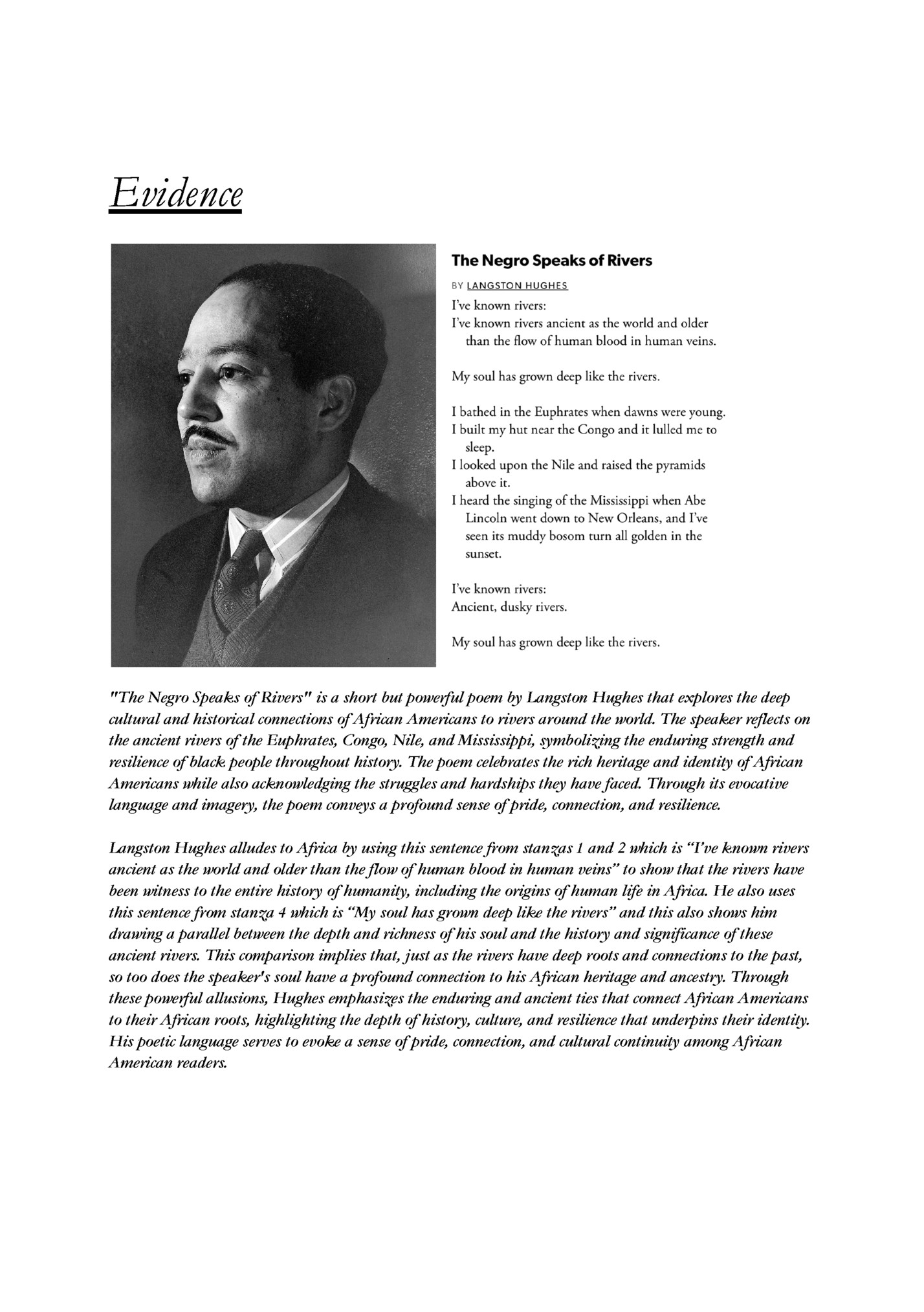
How do representations of Africa in African American poetry reflect and contribute to ongoing dialogues about identity, heritage, and belonging within the African diaspora? Representations of Africa in African American poetry reflect and contribute to ongoing dialogues about identity, heritage, and belonging within the African diaspora by reclaiming and celebrating African roots, challenging stereotypes, fostering cultural pride, highlighting shared experiences, and promoting unity among individuals of African descent worldwide.
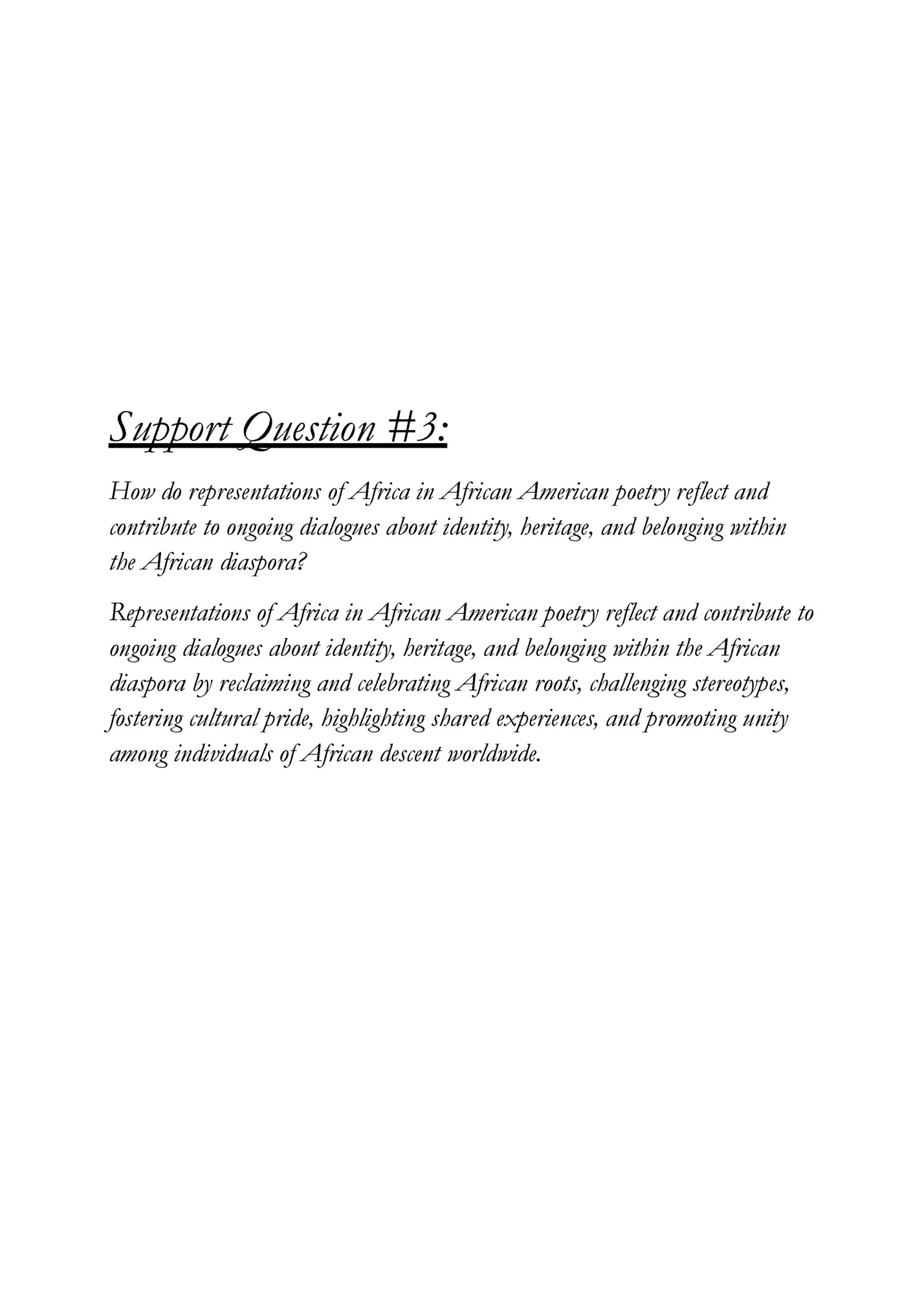
Fleepit Digital © 2021